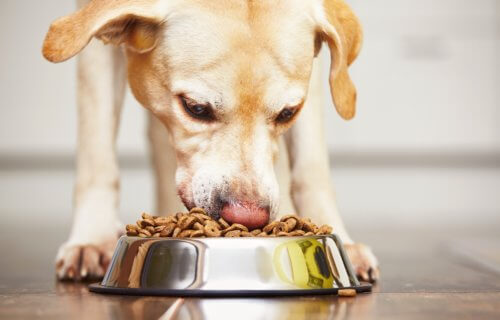URBANA, Ill. — Adding a dog to a household or family is usually a good thing. Our furry friends provide protection, affection, and companionship in ways that no human ever could. However, if you ask any dog owner what their least favorite aspect of pet parenthood is they’ll probably tell you it’s cleaning up after their dog’s business. Luckily, a new study has discovered a way to simultaneously ensure pups enjoy better digestion while cutting down on the poop their humans have to scoop.
Researchers at the University of Illinois say that feeding canines dog food made with human-grade ingredients can result in up to 66 percent less poop to scoop. The team says these higher-quality dog food options, are becoming more and more popular in recent years, taste better, and are easier to digest for our faithful companions.
“Based on past research we’ve conducted I’m not surprised with the results when feeding human-grade compared to an extruded dry diet,” says study co-author Kelly Swanson in a university release. “However, I did not expect to see how well the human-grade fresh food performed, even compared to a fresh commercial processed brand.”
Fresh dog food creates less waste
To reach these findings, a group of beagles was fed four commercially available dog food diets. These included a kibble diet, a fresh and refrigerated diet, and two other fresh diets made with USDA-certified, human-grade ingredients. All three of the fresh diets featured food items such as rice, chicken, broccoli, beef, and carrots. The dogs stayed on each diet for a total of four weeks.
Notably, the beagles who only ate kibble for four weeks had to eat more just to maintain their body weight. Moreover, those dogs produced anywhere from 1.5 to 2.9 times more feces than the pups on fresh food.
“This is consistent with a 2019 National Institute of Health study in humans that found people eating a fresh whole food diet consumed on average 500 less calories per day, and reported being more satisfied, than people eating a more processed diet,” notes Swanson, the Kraft Heinz Company Endowed Professor in Human Nutrition in the Department of Animal Sciences and the Division of Nutritional Sciences at Illinois.
Besides just the mess-reducing benefits of fresher dog diets, researchers also say better food “uniquely influences” dogs’ gut microbial communities.
“Because a healthy gut means a healthy mutt, fecal microbial and metabolite profiles are important readouts of diet assessment,” Swanson explains. “As we have shown in previous studies, the fecal microbial communities of healthy dogs fed fresh diets were different than those fed kibble. These unique microbial profiles were likely due to differences in diet processing, ingredient source, and the concentration and type of dietary fibers, proteins, and fats that are known to influence what is digested by the dog and what reaches the colon for fermentation.”
The study is published in the Journal of Animal Science.
